In 2012, about 58 million pigs, 3.6 million cattle and 1 million sheep were slaughtered in Germany. The German meat industry is so effective that the country has become the slaughter of Europe, but also on the way to becoming the world’s largest meat exporter. With the start of the barbecue season, Lidl offers 20% per kilo of pork loin or € 3.99 per kilo. This award is achieved through the exploitation of workers, mostly East European countries. This with the help of the directive on the posting of workers to principles rather vague, leaving room for all kinds of abuse from shady supplier. Matthias Brümmer, head of the local branch of Oldenburg union for food and catering (NGG) explains how the business of cheap meat.
Tag Archives: seasonal work
Common Declaration Palestine/France
Gallery
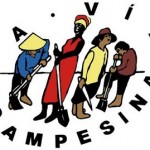
This gallery contains 1 photo.
Common declaration – April 2014 UAWC, PNGO, BDS, LRC, PFU, Confédération paysanne Ramallah, Tuesday April 1st, 2014, Following a year of common work on the theme of migrant and seasonal farm workers in Palestine between UAWC and the French farmers’ … Continue reading
ECVC: Working group on migrant agricultural workers
Gallery
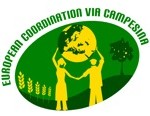
This gallery contains 1 photo.
27.02.2014 Press Release of ECVC (European coordination Via Campesina) Working group on migrant agricultural workers In recent years, the working group related to the issue of migrant agricultural workers in ECVC has gone through important moments of political and human … Continue reading
Thai traffic in the service of Israeli colonization
Gallery

This gallery contains 3 photos.
The violence and massive strikes of Palestinian workers that took place during the two Intifadas1 paralyzed the Israeli economy, heavily dependent on Palestinian labor, following the closure of the borders between Israel and the West Bank by the occupying army.. … Continue reading
Round table “Marx in our plates”, seasonal migrant working for the intensive agriculture
▶ Agriculture in Europa – Video Retales & Amisnet
Being an agricultural worker in an Israeli settlement in the West Bank
Gallery
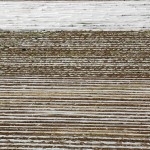
This gallery contains 5 photos.
BY OUESSALE EL ASSIMI, December 2013. PICTURES: Guillaume de Crop, October 2013. The Jordan Valley is located in the East of the West Bank, by the Jordanian border, in Area C[1]. 95% of the Jordan Valley is under Israeli military … Continue reading
Migrants in rural environment in Europe : the invisible slaves of intensive production and food industry.
Gallery
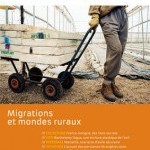
This gallery contains 1 photo.
Link to a radio broadcast in french | Liberté sur paroles – Emission d’Eugénie Barbezat sur Aligre FM.
Collective and social agriculture against industrial agriculture in Southern Germany
Gallery
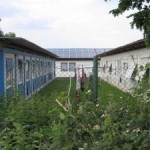
This gallery contains 4 photos.
After nearly 3 months in Germany to work on migrant agricultural seasonal and the state of the peasant farming, I saw through the windows of my car monocultures of any kind, intensive breeding supply mega-installations, and funny big white bubble … Continue reading
Camps for Rosarno
Gallery
On January 17, Andrea Riccardi, Minister for Cooperation, Immigration and Integration in government Monti was visiting Rosarno (Calabria) to realize the situation. Each year, between the months of November and March, the municipality of 15,000 inhabitants “host” hundreds of seasonal … Continue reading
Report 2012 by the International Federation for Human Rights : imported workers for exported strawberries
Gallery
Summary: In Huelva, Andalusia, intensive strawberry cultivation, for export at an early stage to European markets calls for a few months of the year to abundant temporary workers (over 50 000), mainly of migrant workers. In order to both meet … Continue reading
Kit Agricultural Migrant Workers’ Rights: Romanian & Polish
Gallery
The invisible workforce
Gallery
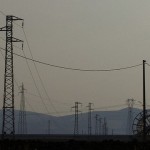
This gallery contains 10 photos.
SOUTH ITALY – THE INVISIBLE WORKFORCE In the agricultural zones of southern Italy, undocumented migrants move from one region to another, following the harvests in search of work. In August and September, the fields are dotted with tomato pickers. Segregated … Continue reading
Hard-working and neat !
Summary:
In Huelva in Andalucia’s strawberry harvest is partly ensured by many Moroccan migrant women. Through agreements between Spain and Morocco workers are selected and brought in the south of Spain for crops. They are all mothers considered as more docile than men and more likely to return to Morocco, once the season ended, than those who do not have children. So they come without their families and are housed in groups often in opaque conditions. For the Moroccan State such initiatives allow to generate revenue abroad while fighting against illegal immigration.
In 2008 a group of Senegalese women hired through the same types of agreements have escaped from the plantations and their “lures, disappointments and humiliations.”
Télécharger (PDF, 4.68MB,200807_EspagneMaroc_NadiaMessaoudi_TravailleusesEtPropres.pdf)
Andalusia : imported women for exported strawberries
The Origin’s Contracts system allows farmers in the region of Huelva in Andalucia to bring thousands of Moroccans, Romanians, Bulgarians and Poles workers for the strawberry harvest each year. Employers prefer women (more “docile”) and mothers to ensure a return to the country at the end of the season. This system know many abuses (unpaid hours, unsanitary accommodation) and compress the costs for labor and yet captures European funds for the fight against racism and xenophobia (project “Equal Area” or “Aeneas Cartaya “).

